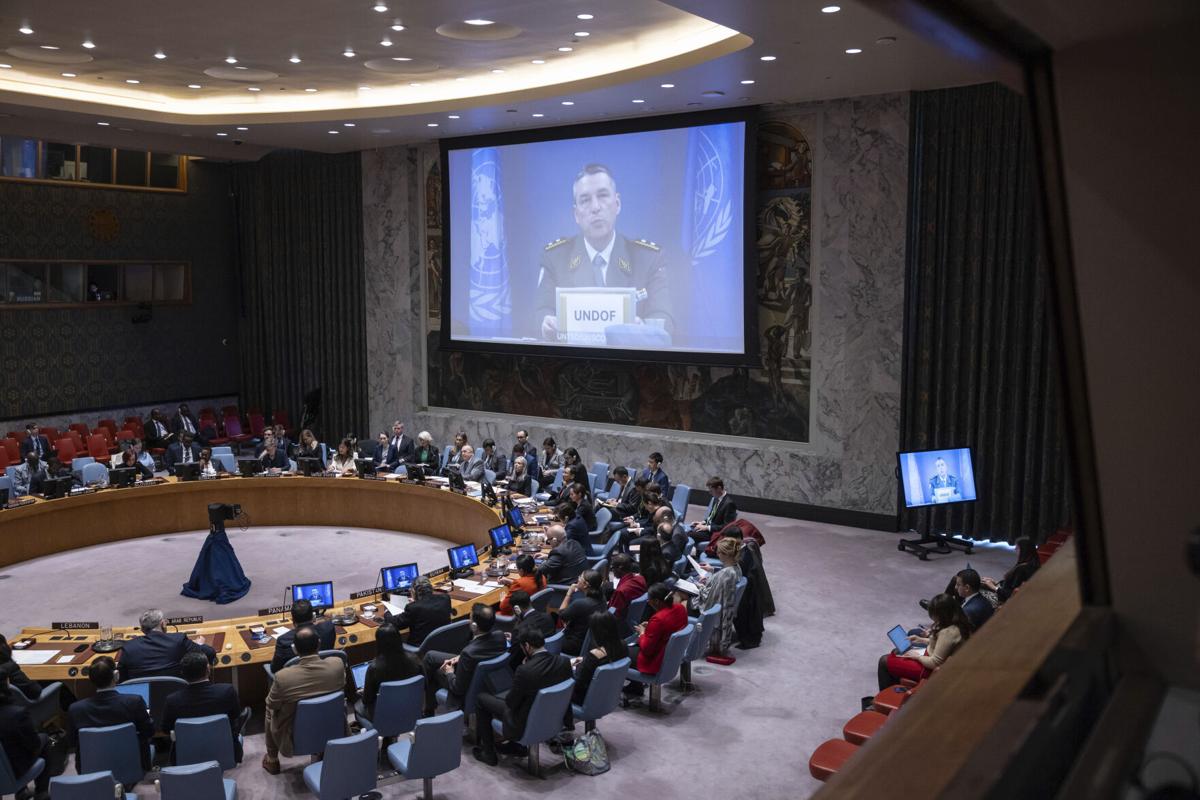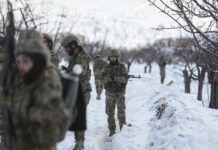
Ongoing Israeli incursions and occupation of Syrian territory coupled with airstrikes have escalated tensions, prompting widespread condemnation from Syria’s Transitional Government (STG), the UN, and other nations. These actions, which violate Syria’s sovereignty and international law, threaten regional stability and undermine the 1974 Disengagement Agreement.
Escalation of Israeli Operations
On Wednesday, Israeli warplanes targeted a military convoy in the village of Ghadeer al-Bustan, near the administrative border of Daraa and Quneitra governorates. The strike killed the village mayor, Abdo Al-Koma, and two members of the STG security forces. The attack has heightened tensions in the region, with local reports indicating increased aerial activity by Israel.
In addition, Israeli military units have advanced into Syrian territory, reaching areas as close as 20 kilometers from Damascus. Residents and media outlets report that Israeli forces have been conducting construction and excavation operations near Mount Hermon, damaging agricultural lands and raising fears of further territorial encroachments.
Syrian Objections
Syrian Foreign Minister Asaad al-Shaibani condemned the Israeli actions, emphasizing the STG’s commitment to defending the nation’s sovereignty and protecting its citizens. Speaking on Turkish state television, Al-Shaibani called for international pressure on Israel to withdraw from Syrian territory.
“We sent messages that Syria will not be a source of threat to any country, including Israel,” Al-Shaibani said. “Just as they want to preserve their security, they must respect the security of others.” He stressed that Israel’s actions violate the 1974 disengagement agreement, which established a buffer zone under UN supervision to maintain peace along the border.
STG leader Ahmad al-Sharaa echoed these sentiments, accusing Israel of using the presence of Iranian militias, Hezbollah, and the Assad regime, all now absent, as a pretext for continued aggression. Al-Sharaa called for the return of international peacekeeping forces to the buffer zone to restore stability and prevent further Israeli advances.
International Response
The United Nations Disengagement Observer Force (UNDOF), tasked with monitoring the buffer zone, has reported significant disruptions to its operations due to Israeli activities. According to Major General Patrick Gauchat, the acting commander of UNDOF, Israeli forces have constructed military fortifications and communication networks within the separation zone, violating the terms of the disengagement agreement.
“These activities have seriously impacted the operational capacity of UNDOF, reducing its movements from 55 to 60 operations per day to just 10 basic logistical tasks,” Gauchat said during a UN Security Council briefing.
Residents of the occupied Syrian Golan have expressed their grievances to UN peacekeepers, calling for the withdrawal of Israeli forces and reporting instances of searches and arrests of their relatives.
Qatari Prime Minister Muhammad bin Abdulrahman Al Thani also condemned Israel’s actions, describing the incursions as “reckless behavior.” Al Thani reiterated Qatar’s support for the STG and called for an immediate Israeli withdrawal from Syrian territory, emphasizing the need to respect Syria’s sovereignty.
A Breach of International Law
Israel’s ongoing occupation and military operations in Syria have been widely criticized as violations of international law. The UN has reaffirmed the illegality of Israel’s actions and called on all parties to respect the ceasefire and the terms of the disengagement agreement.
Despite these calls, Israel has attempted to justify its actions as “defensive measures” against “perceived threats,” claiming that the targeted convoy was transporting weapons near the buffer zone. However, Syrian officials argue that such claims do not justify the blatant violation of Syria’s territorial integrity.
Regional & Global Implications
The escalating conflict risks further destabilizing a region already fraught with tensions. Syria’s STG has sought to restore international relations and secure support for its reconstruction efforts, but ongoing Israeli violations undermine these initiatives and distract from the country’s rebuilding process.
The UN and other nations have stressed the need for diplomatic solutions to prevent further escalation. “The international community must act to pressure Israel to respect Syria’s sovereignty and withdraw from its territory,” Al-Shaibani said.
A Call for Accountability
As Syria seeks to turn a page from the Assad regime’s legacy, the STG and its allies are urging stronger international action to hold Israel accountable for its violations. The commitment to peace and stability in Syria requires adherence to international law and respect for its territorial sovereignty. The STG’s calls for international forces to return to the buffer zone highlight the urgent need for multilateral cooperation to de-escalate tensions and ensure lasting peace in the region.








